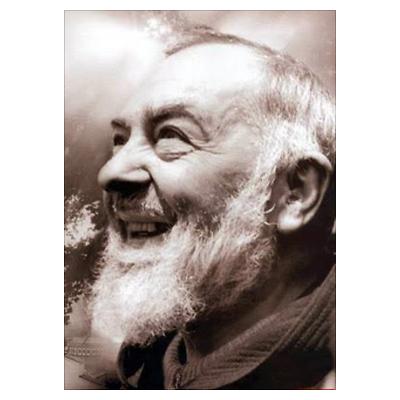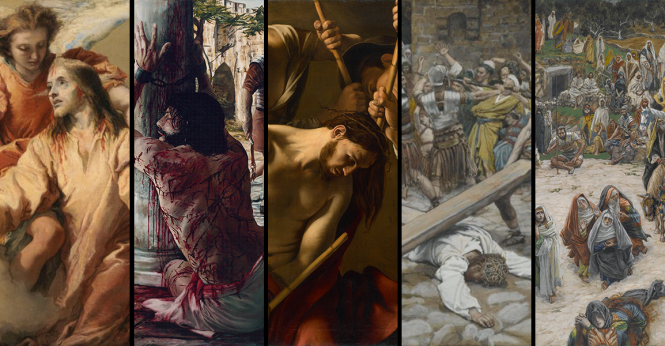Lay me bare, inflict the wound of preciseness,
Lord, You know me too well, understanding my pride,
Need. Cleverness too easy to appease,
Effortlessly extolling the spiritual, relishing the intellect denouncing,
The intellect. Know not the softer easier way.
The spiritual life too easy, escapism, problematic avoiding,
Lord what do You see?
Allow me not to become insane in Your eyes,
My glaring weaknesses, what is it that stops unification,
What is it that will not cease that You despise,
What stops me from loving you as deeply as You deserve?
There is something.
Many things there are.
Give me the strength Lord to focus,
Not to wallow in the glory, rather to reveal the ugly,
Now standing upon dirt, apply the fire,
Purge ugliness and unrepentant sin,
Purgatory here upon the earth!
Courage
Fortitude
Insight
Remain steadfast
Help me Lord to:
Purify the putrid, open festering wounds.
Cut loose that which weakens, scattering virtue to the wind,
Mortify appetite, reject the pronunciation of pretty words,
Alienate articulation, inflict fear upon the tongue,
Cut away the smallest traces, abandon idealism,
Stupefy the mind so I can concentrate.
The tiniest infraction magnify.
While time still exist, make the most of confessing.
The sacraments healing, the Church abiding,
Cast away reputation, interject humiliation,
Allow the eternal to dictate every ebb and flow.
Never let me forget the never ending.
In You Lord, I adore keenly criticizing myself.
Contemplation

Innocence Invested

A Capuchin smile

Edification through humiliation
In truth, the humiliations we design for ourselves are always too delicate and too infrequent to cause the destruction of self-love. What we require is that others should put us to shame, should bluntly tell us the truth about ourselves, should expose us, should repeatedly denounce us and make us feel the world of misery and corruption that is seething within us… But if they (humiliations) were more powerful and enduring, they would also be, through the mercy of God, in fuller measure “a compensation for our sins of the past, the means to the pardon of our daily offenses, a remedy for our infirmities, a treasure of merits and virtues, a proof of our loyal devotion to God, the purchase-price of intimate relations with him and the means of our perfection.
Humiliations foster pride when they are rejected with anger or excepted with discontent. This fact explains why ” So many are humbled without becoming humble,” as St Bernard remarks. He alone profits by humiliations who receives them with gratitude… Hence, far from regarding the humiliation as an evil, I ought rather to look upon it as a remedy. I ought to bless God who deigns to cure me. I ought to feel thankful to my brethren for the assistance they give me in conquering self-love. Besides, what I should really consider a proper subject for shame, confusion and humiliation is to feel myself still so full of pride after my many years spent in the service of the King of the humble
–Abbot Vital Lehody

Abbey of Gethsmane presentation
Abbey of Gethsemane is a Power Point presentation I put together many years ago. It covers my first visit to the monastery, a five day vocational discernment process. To view the photos is difficult. It reminds me of distant years, times of active alcoholism. The pain, struggles, loneliness, alienation are harsh upon the memory. In my heart, there was so much love, energy bursting to see the light, to give witness and testify, to authentically believe I possessed a vocation as a consecrated contemplative, and yet in reality I was a man unable to put my life in order, unable to bring others into my life, unable to allow God to become a loving and living reality. Reviewing the photos, the people I met I remember distinctly, everything about the first visit is precise in recollection, filled with wonder and hope. I remember the painter from Boston Ms. Walsh, conducting pencil drawings during her retreat, commenting to me that I seemed so sad. We would go on walks together, and I just could not verbalize. She was a beautiful woman, pleasant disposition, peaceful manner, honored she chose me for walks. I wanted to talk with her, yet words would not come forth. I wondered why she kept looking for me for walks when I was so dumbfounded and silent. I could not express myself. It reminds me of a scene I just watched in a film. I am making my way through the Teresa of Avila miniseries once again—a favorite viewing on so many levels. In the opening episode Teresa’s uncle gives her Francisco de Osuna’s “The Third Spiritual Alphabet”. The book would transform her spiritual life, introducing the idea of an interior castle. After receiving the book, clutching it to her chest, she tries to explain to her uncle what is bothering her. “I don’t have time to explain. I don’t understand myself….I always think things will be different. More bigger, you know, more…” Lost for words, her uncle provides his own response, “more heroic. Yes my child. The same thing happens to me. It’s hard to believe things are what they are.” I love how the film captures Teresa often looking about her normal environment, marveling, perceiving the miracle of existence, the totality of reality. I remember once as a young adult walking amidst a snowstorm. The falling snow, the accumulated snow, the historic neighborhood, the night, streetlights, and Christmas decorations all synchronized into a beautiful vision of existence, traversing the divide was comprehension, a momentary coalescing… It reminds me of a feeling of wonderful sadness that often fills me. Contemplative in the Mud posted words by an influence who touched on a profound sadness that is filled with joy. That is perfect. I did not mean to get started on the Teresa of Avila miniseries. I love it. An important point to take note of in this spectacular epic is the fact that Teresa, a mystic of renowned accomplishment, lived so actively and passionately in the world. The opening episode has nothing to do with convents, or cloistered religious being isolated from the world. Teresa is a Carmelite totally engaged in the world. I love the caravans Teresa and her cohort travel amongst. Everywhere she goes she travels with a crowd, people of diverse backgrounds, an abundance of things: wagons, luggage, and animals. Venturing through the world with Teresa is a conglomeration of people, animals and things, including song. Someone is always at her side, conversing advising or being advised. Her and her traveling entourage are greeted with welcome, and heightened expectation upon arrivals. Life is a grand extravagance for the drama queen, filled with people, experiences, and spectacle, yet still life is not satisfying her interior calling. Her exterior life is filled in abundance, yet it is not enough. Teresa is always open to life and individuals, while longing for more. Children climbing on her back, playing upon her, as she lies upon the ground reading mystical books. I love her companionship, intimate connection bordering on codependency with Juanita, recalling the companeros Don Quixote and Sancho Panza. Teresa more than loved people. An accomplished mystic, a contagious loving and effective imprint, she could not live without people. She was always witnessing others, or being witnessed herself. Back to the Gethsemane PowerPoint presentation. I dug it up after viewing the Cistercian encyclopedia detailing the profile of Dom Vital Lehody. I became nostalgic for my experiences with Trappist communities. I did not anticipate the melancholy sweeping over me as I recalled those distant years. Words of Father Lehody come to mind. “Furthermore, regrettable as our faults may be in themselves, they become still worse in their consequences, when they give rise to uneasiness, discouragement or perhaps even despair. On the contrary, peace in repentance is a thing very desirable”. Excessive guilt is a trap. God is a forgiving God. To trust in God is to understand his mercy is absolute. On the path of perfection, there is no need for wallowing in misery. Amongst a conviction to expanding faith, hope, and charity, is the belief that hope surpasses personal experience. My hope in God is greater than my past.

Sorrowful Mysteries
Suffering: the temporal finality of Divine Birth
I have been liberally utilizing images from the web. I am a bit concerned regarding ethics. There is absolutely no intent of profiting. I would like to acknowledge the blog this collected work of images embracing the Sorrowful Mysteries was borrowed from. Verbum Blog (Verbum=word) The final mystery: Crucifixion, Seen from the Cross, by Jacques Tissot, 1890.

Gethsemane grounds






Recent Comments